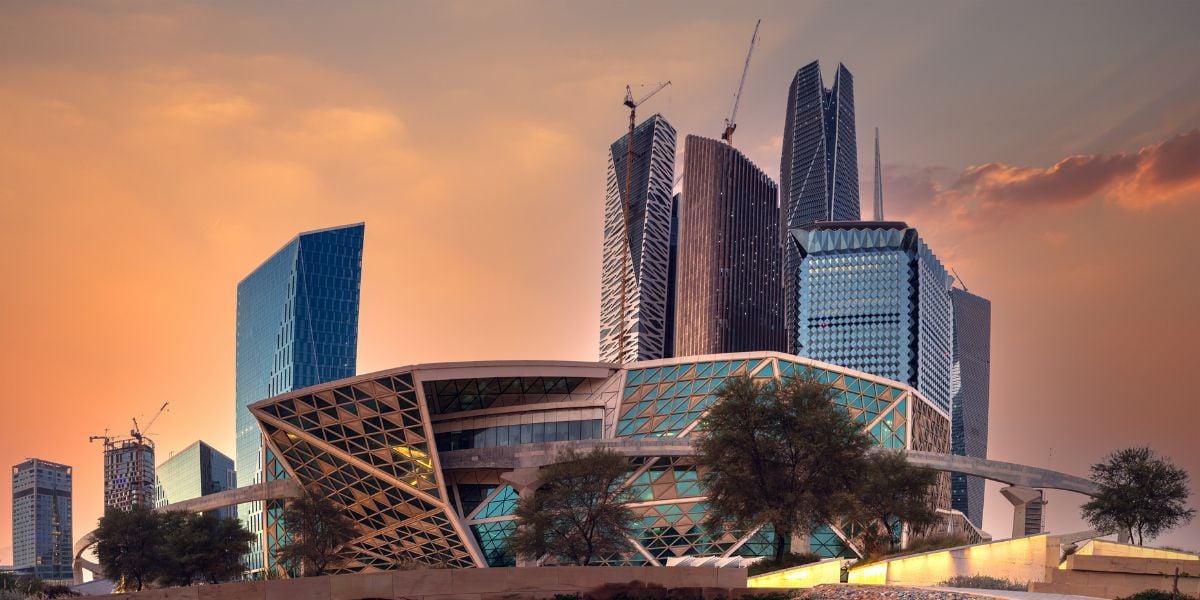Saudi Arabia, the largest Arab state in Western Asia by land area, is filled with gloriously beautiful buildings such as Al-Masjid al-Nabawi, the second holiest site of Islam, and Quba Mosque, one of the oldest mosques in the world.
Travelling to Saudi
British pilgrims travelling to perform Umrah and Hajj are required by Saudi government regulations to travel with a United Kingdom travel agency that is accredited with the Royal Embassy of Saudi Arabia.
Shariah law
Islamic law is strictly enforced in Saudi Arabia, which will require researching traditions and customs to ensure you do not offend locals. These include not eating, drinking or smoking in public during the daylight hours of Ramadan.
Getting there
Travelling to Saudi Arabia from the UK is only possible by airplane, with flight times varied depending on which airline you choose.
Flights from London to Riyadh, Saudi Arabia’s capital, can be booked for a shortest trip of less than seven hours, while the average time takes roughly 10 hours.
Time difference
The time difference in Saudi Arabia is two hours ahead of British Summer Time and three hours ahead of Greenwich Mean time, which should not necessitate major changes to your diabetes management.
However, if you are uncertain about managing your diabetes in Saudi Arabia, you should consult a member of your diabetes team.
Climate
Average summer temperatures of 45°C and high temperatures of 54°C are common.
If you take insulin, you should attentively check your blood sugar levels as insulin consumption can be enhanced in warmer weather.
You could consider reducing your dosages before periods of physical activity if you are concerned about hypoglycemia
Currency
The currency used in Saudi Arabia is the Saudi riyal. Most ATMs accept a substantial number of both regional and international cards, however there is usually a fee for using ATMs which are operated by banks other than your own.
Vaccinations
You should seek to visit your doctor no later than two months before departing the UK to assess which vaccinations you may require before entering Saudi Arabia.
Visitors who are travelling to Saudi Arabia for the Hajj and Umrah pilgrimages to Mecca will need to produce a certificate of vaccination with a quadrivalent meningitis vaccine before they can be issued with a visa. This is also recommended for travellers not going to Mecca.
Otherwise, there are several recommended vaccines for all travellers entering Saudi Arabia, which include hepatitis A, hepatitis B and influenza.
A yellow fever vaccine is required from all travellers entering Saudi Arabia from a country where yellow fever is prevalent. Otherwise, this is not recommended.
Under 15s
Travellers under the age of 15 are required to undergo a polio vaccine if arriving from a country where polio still occurs. A one-time booster is recommended for adult travellers who have not had a vaccine as an adult but completed the childhood series.
A rabies vaccine is also recommended for travellers at high risk for animal bites or involved in any activities that might bring them into direct contact with bats. Both animals are known to carry the disease in Saudi Arabia.
The opportunity to ensure your existing vaccination against tetanus is up to date should also be taken.
Ensuring access to medication
UK citizens with diabetes will not be entitled to any free medication services while in Saudi Arabia. Securing comprehensive medical insurance will be essential in order to obtain even basic treatment
Diabetic medication is available in Saudi Arabia, but payment will be required from all pharmacies. Blood are urine testing kits are available from most pharmacies.
Most pharmacies open from 0930 to 1300, close for the afternoo, and then reopen from 1630 to 2230. Many hospitals in Saudi Arabia also have 24-hour pharmacies in which medication can be collected.
The emergency services number to call for in Saudi Arabia is 997
Insulin
You should note which syringes are available in Saudi Arabia, with U-100 syringes the most commonly used.
The vast majority of insulin in the UK is U-100 insulin. If you need to take a different strength of insulin , say in an emergency, it’s important that you use the correct device and syringes for that insulin.
For example, you would use a U-40 syringe for U-40 insulin. You will need to work with a doctor getting the right dose if you’re using a different form of insulin.
Diabetes associations
It is important to note the diabetes associations in the country you are travelling to in case of an emergency.
The diabetic association of Saudi Arabia is the Saudi Diabetes and Endocrine Associatio, which has been a member of the International Diabetes Federation (IDF) since 1991. The address is:
- Saudi Diabetes and Endocrine Association
Al-Thuraya Building, 4th Floor,
P.O.Box 1498,
31952 Al-Khobar,
Kingdom of Saudi Arabia
Tel: +966.38878970
Email: [email protected]
Questions
- How is blood glucose measured in Saudi Arabia? Unfortunately, we do not have the information of whether blood glucose is measured in mg/dl or mmol/l in Saudi Arabia.
- What language is spoken in Saudi Arabia? Arabic is the official language of Saudi Arabia, but English is widely used throughout the country.
- Will I need an international driving license when driving in Saudi Arabia? Yes
- If I want to hire a vehicle during my visit, will I face any form of discrimination? It is illegal for women to drive in Saudi Arabia.
- What sugar free drinks are available in Saudi Arabia? Most diet drinks available in the UK such as Diet Coke and Diet Vimto are available, as are most artificial sweeteners.




